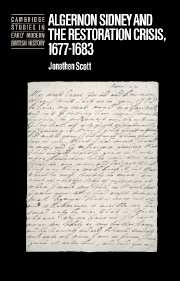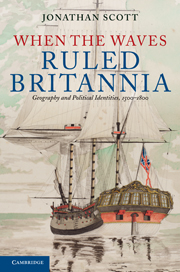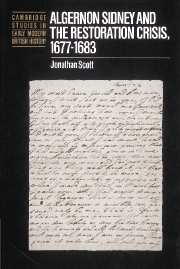Algernon Sidney and the English Republic 1623–1677
In the century following his execution for treason in 1683, Algernon Sidney became one of the most widely influential political writers - in both Europe and America - that England had ever produced. This is the first full-scale study of Sidney for more than a century, and the first ever study of his political thought. The book describes Sidney's republican political ideas and their later impact. It sets them in their ideological context, in relation both to their sources and to the ideas of contemporaries, including Milton, Harrington, Vane, and Locke. It then asks: how did this ideology develop, and why? The answer involves a series of investigations: of Sidney's family background; of the nature of his personal life and family relationships; and of his public political career. On this latter score we follow Sidney's progress from parliamentarian soldier in the English Civil War, to senior member and ambassador of the English Republic, to embittered exile after the Restoration in 1660.
- The first ever study of Sidney's political thought
- Sets his ideas in relation to his contemporaries e.g. Milton, Locke
- Widely influential writer in both Europe and America
Product details
January 2005Paperback
9780521611954
272 pages
228 × 153 × 18 mm
0.422kg
Available
Table of Contents
- Preface
- Acknowledgements
- 1. Introduction: the man and the myth
- Part I. Family and Ideas:
- 2. Political and religious thought
- 3. Family background
- 4. Family politics
- Part II. War and Politics:
- 5. Diplomacy and war 1635–48
- 6. Republic 1649–53
- 7. Tyranny 1653–59
- 8. War and diplomacy 1659–60
- Part III. Restoration and Exile:
- 9. The Restoration
- 10. Rome 1660–63
- 11. The exiles 1663–66
- 12. The Court Maxims
- 13. The Dutch connection
- 14. Le Comte de Sidney 1666–77
- Index.










